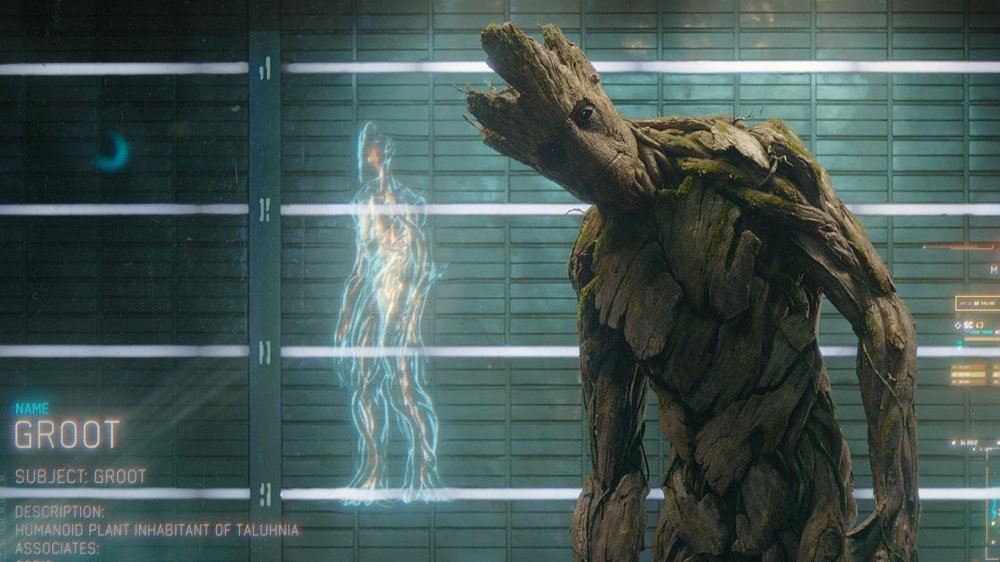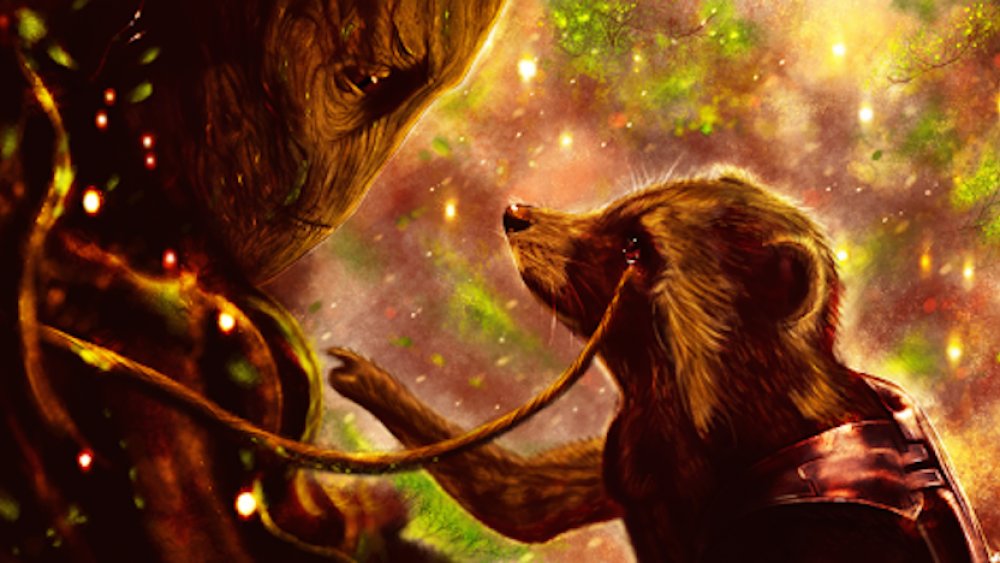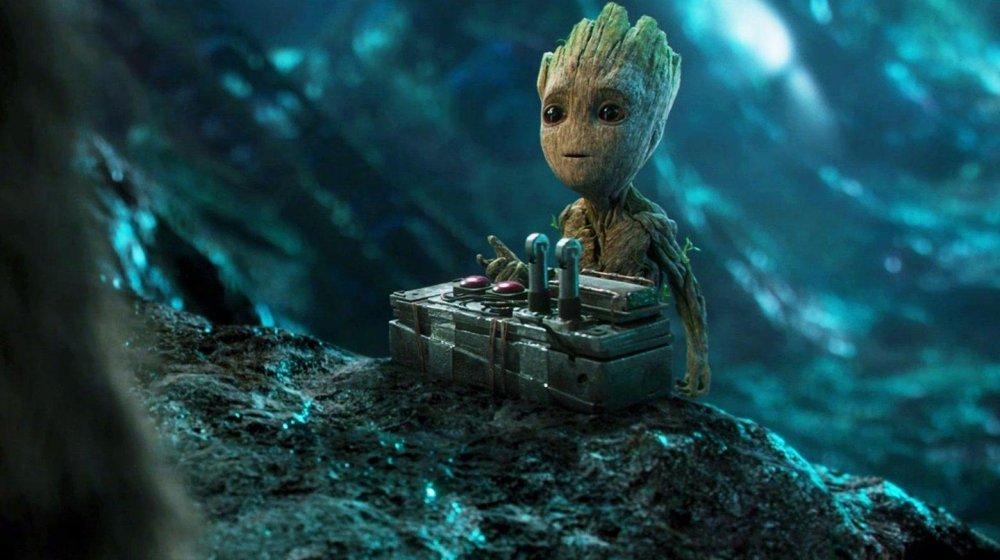Why Groot Had To Die In Guardians Of The Galaxy
In a massive franchise like the Marvel Cinematic Universe, every scene is crucial to the narrative. With so many characters and factions, every minute has to be well-spent developing characters or plot points. It makes for a pretty emotional ride. A fine example of this is Groot's (voiced by Vin Diesel) tear-jerking self-sacrifice to save his teammates in 2014's Easter egg-filled Guardians of the Galaxy.
The movie served as an origin story for the team, seamlessly integrating each member into the overarching plot of the MCU. At first, the Guardians' wide range of backgrounds, strengths, and weaknesses made getting along a real challenge. Drax (Dave Bautista) even came dangerously close to killing Gamora (Zoe Saldana) right off the bat. Thankfully, conflict wrought character development, and the group ultimately pulled together — even in the face of tragedy.
Groot's death marked the most poignant emotional beat of the film. As Ronan's ship — the Dark Aster — plummeted toward the surface of Xandar, Groot used himself as a barrier to protect his allies from the lethal impact. He made a conscious effort to keep his newfound friends alive, and that decision was not made in vain.
Groot's death brings the Guardians of the Galaxy together
Director James Gunn (who is now set to direct a soft reboot of DC's Suicide Squad) proved his filmmaking chops when he brought tears to the eyes of millions by killing off a walking tree. Even the acerbic Rocket Raccoon (voiced by Bradley Cooper) felt the impact of the moment. The Guardians started the film as strangers to each other; by the end their bond was strong enough to sell Groot's sacrifice for the good of the team. Losing the big Flora colossus was sad, but it kickstarted a serious and necessary change in the Guardians' lives.
Groot's final words embodied what the Guardians of the Galaxy would become: a family. "We are Groot" isn't just a throwaway line, but rather a weighty declaration that the team stands unified in their fallen brother's memory. His demise gave them a cause to rally around: working together to avenge Groot. It acted as the catalyst for their transformation into a legitimate team. Sure enough, the follow-up film, 2017's Guardians of the Galaxy Vol. 2, proved how familial their dynamic had become.
Groot's sacrifice paves the way for his unconventional character development
Groot is a tricky character to develop. He's a giant, walking plant only capable of saying three very specific words. These limitations relegate him to the realm of comic relief or — at best — a supporting, dramatic role. There won't be any Oscar-worthy monologues or deep dives into his character. To give Groot a character arc worthy of a heroic tree, Gunn had to take a more creative approach.
Guardians of the Galaxy Vol. 2 introduced Baby Groot, who Gunn revealed is technically the son of the first Groot. By the time of Avengers: Infinity War, this "new Groot" is already a teenager. Since the Guardians operate like a little family, the immature Groot gives them the opportunity to "raise" a child together. Talk about unconventional parenting. Though the second Groot occupies a new niche among the Guardians, he stands as a living reminder of the original Groot's sacrifice.


